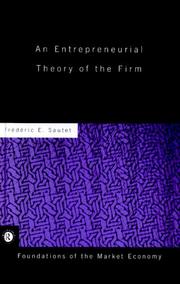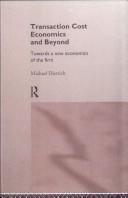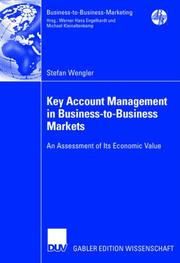| Listing 1 - 10 of 14 | << page >> |
Sort by
|
Book
Year: 2022 Publisher: Reims : EPURE, Éditions et presses universitaires de Reims,
Abstract | Keywords | Export | Availability | Bookmark
 Loading...
Loading...Choose an application
- Reference Manager
- EndNote
- RefWorks (Direct export to RefWorks)
Contraint ou délibéré, le changement est une composante de toute organisation. Il concerne nécessairement les acteurs associatifs : dirigeants, professionnels ou bénévoles, mais aussi usagers d'un service. Pour ne pas être subi, le changement en association doit être expliqué, analysé et accompagné. Il est dès lors essentiel d'explorer les représentations collectives, de comprendre les logiques d'action, de cerner le sens qu'en donnent les acteurs concernés.
Book
Year: 2022 Publisher: Reims : EPURE, Éditions et presses universitaires de Reims,
Abstract | Keywords | Export | Availability | Bookmark
 Loading...
Loading...Choose an application
- Reference Manager
- EndNote
- RefWorks (Direct export to RefWorks)
Comment comprendre l'action publique en matière d'inclusion sociale et professionnelle ? Comment en mesurer les évolutions, en évaluer les effets sur les territoires ? Comment prendre en compte les besoins des personnes dites « les plus éloignées » des qualifications sociales et professionnelles ou encore « invisibles » au regard des dispositifs d'insertion ; autrement dit comment œuvrer pour la participation de tous à la vie sociale et économique sur les territoires ? C'est en partant de ces questionnements que les auteurs de cet ouvrage ont engagé un travail de recherche-action au sein du service insertion d'un conseil départemental dont ils présentent ici certains des résultats.
Multi
ISBN: 9780128126127 0128126124 9780128126110 0128126116 Year: 2020 Publisher: Elsevier
Abstract | Keywords | Export | Availability | Bookmark
 Loading...
Loading...Choose an application
- Reference Manager
- EndNote
- RefWorks (Direct export to RefWorks)
Industrial economics --- Transportation accidents --- Public safety --- Externalities (Economics) --- Economic aspects. --- Government policy.
Book
ISBN: 0128038268 0128037687 9780128038260 9780128037683 Year: 2016 Publisher: Amsterdam, [Netherlands] : Academic Press,
Abstract | Keywords | Export | Availability | Bookmark
 Loading...
Loading...Choose an application
- Reference Manager
- EndNote
- RefWorks (Direct export to RefWorks)
Securities --- Transaction costs --- Liquidity (Economics) --- Mathematical models. --- Assets, Frozen --- Frozen assets --- Finance --- Cost --- Externalities (Economics) --- Right of property --- Stochastic orders --- Ordres stochastiques

ISBN: 0415229774 0415771080 1134582927 0585453101 0203466659 1134582935 1280037474 0429232578 9780203466650 9780585453101 9781134582921 9786610037476 6610037477 9780415229777 9781134582884 9780415771085 Year: 2002 Publisher: London Routledge
Abstract | Keywords | Export | Availability | Bookmark
 Loading...
Loading...Choose an application
- Reference Manager
- EndNote
- RefWorks (Direct export to RefWorks)
This original, provocative work makes a thorough and comprehensive enquiry into the relationship that exists between firms and markets, with separate, in-depth examinations of both the existence and inner organisation of the firm. Sautet develops an accomplished and convincing theory that encompasses a wealth of existing literature and leads it in an entirely new direction.
Industrial organization (Economic theory) --- Transaction costs --- Industrial economics --- Market structure --- Transaction costs. --- Cost --- Externalities (Economics) --- Right of property --- Microeconomics --- Business management --- International finance
Book
ISBN: 3834912751 3834999245 Year: 2008 Publisher: Wiesbaden : Gabler,
Abstract | Keywords | Export | Availability | Bookmark
 Loading...
Loading...Choose an application
- Reference Manager
- EndNote
- RefWorks (Direct export to RefWorks)
While making and buying are usually regarded as being mutually exclusive in extant theory, in reality, making-and-buying is employed in various contexts, such as industrial manufacturing, the media, and clinical trials. After assessing transaction cost economics as the most important theory of the make vs. buy decision, Anna Krzeminska develops an extension to the TCE framework which spotlights uncertainty as a main explanatory variable. This approach not only allows distinguishing different types of make-and-buy but also enables an explanation of determinants, management mechanisms, and performance implications of each make-and-buy type separately. Empirical analysis with data from the German automotive industry shows predominant support for the hypotheses. Thus, this work contributes to a better understanding of the categorization of economic institutions.
Expenditures, Public. --- Externalities (Economics). --- Transaction costs. --- Business & Economics --- Management --- Management Theory --- Economic Theory --- Economics. --- Business. --- Management. --- Leadership. --- Business and Management. --- Business Strategy/Leadership. --- Cost --- Externalities (Economics) --- Right of property --- Economic theory --- Political economy --- Social sciences --- Economic man --- Administration --- Industrial relations --- Organization --- Ability --- Command of troops --- Followership

ISBN: 0415071569 0415071550 9786611134501 1134909837 1283708078 1281134503 0203015991 9780203015995 9780415071550 9780415071567 9781283708074 9781134909834 9781281134509 6611134506 9781134909780 9781134909827 1134909829 Year: 1994 Publisher: London Routledge
Abstract | Keywords | Export | Availability | Bookmark
 Loading...
Loading...Choose an application
- Reference Manager
- EndNote
- RefWorks (Direct export to RefWorks)
Transaction cost economics have come to dominate discussions about the nature of the firm. In this critical analysis of the transaction cost paradigm, Michael Dietrich argues that whilst it offers some vital insights, the transaction cost approach is an inadequate basis for a general theory of the firm. Beginning with an overview of transaction costs, the book pays particular attention to the work of Oliver Willaimson in outlining both the advantages and the disadvantages of the approach. Assuming that the organization of the firm is static, transaction cost economics is least effective in explaining the dynamic aspects of firms' behaviour. However, rather than rejecting the whole approach on these grounds, Michael Dietrich looks at ways in which the theory can be enlarged and its explanatory power increased. Considering such recent innovations as total quality control and just-in-time management. the book presents a vision of the firm in which decision making can be both hierarchical and creative. The implications of this for business policy are assessed.
Cost accounting --- Transaction costs --- Industrial organization (Economic theory) --- Institutional economics --- Economic Theory --- Business & Economics --- Transaction costs. --- Institutional economics. --- Industrial economics --- Market structure --- Economics --- Microeconomics --- Cost --- Externalities (Economics) --- Right of property
Book
ISBN: 1280743727 9786610743728 0387255346 Year: 2006 Publisher: New York : Springer Science+Business Media,
Abstract | Keywords | Export | Availability | Bookmark
 Loading...
Loading...Choose an application
- Reference Manager
- EndNote
- RefWorks (Direct export to RefWorks)
The twenty-two papers collected in this volume illustrate the itinerary of Henry Tulkens, an applied theorist, on the occasion of his retirement from teaching. The collection is structured in four parts: I. Decentralized resource allocation processes for public and private goods II. Environment, public goods and externalities III. Efficiency analysis IV. Fiscal competition and optimality The four pictures above evoke a key concept, method or model used in each of these four parts: > MDP-type processes to determine feasible paths to efficiency and coalitional stability. > CLIMNEG World Simulation model to explore alternative environmental scenarios for the planet. > Free Disposal Hull efficiency analysis to drop convexity and help deal with outliers. > Non Cooperative Fiscal Equilbria to characterize the outcomes of fiscal competition.
Public goods --- Externalities (Economics) --- Fiscal policy --- Costs, Social --- External economies and diseconomies --- External effects (Economics) --- Social costs --- Economics --- Waste (Economics) --- Welfare economics --- Mathematical models. --- Environmental aspects --- Public finance. --- Environmental economics. --- Public Economics. --- Environmental Economics. --- Environmental quality --- Cameralistics --- Public finance --- Currency question --- Economic aspects --- Public finances

ISBN: 383509355X 3835005170 Year: 2006 Publisher: Wiesbaden : Deutscher Universitats-Verlag,
Abstract | Keywords | Export | Availability | Bookmark
 Loading...
Loading...Choose an application
- Reference Manager
- EndNote
- RefWorks (Direct export to RefWorks)
In times of fierce competition in business-to-business markets strong and economically sound business relationships with a company's customers rank among the main success factors. As a well established marketing management conception, key account management is of particular significance in this context. Interestingly enough, empirical research studies have recently proved that relationship marketing, and particularly key account management, does not achieve the economic value originally expected. Stefan Wengler provides a well founded answer to the question of the economic value and shows the need for the implementation of key account management. He presents a comprehensive, but easy-to-handle decision-making model that supports the decision on the most efficient key account management organization for individual companies. In addition, the author gives a comprehensive overview on the key account management conception and its controlling tools.
Consumers --- Marketing --- Selling --- Transaction costs --- Management. --- Key accounts. --- Cost --- Externalities (Economics) --- Right of property --- Key accounts in selling --- Key accounts in marketing --- National accounts marketing --- Customer services --- Customers (Consumers) --- Shoppers --- Persons --- Marketing. --- Consumer goods --- Domestic marketing --- Retail marketing --- Retail trade --- Industrial management --- Aftermarkets
Book
ISBN: 9780881326963 0881326968 088132695X 9780881326956 Year: 2016 Publisher: Washington, D.C. Peterson Institute for International Economics
Abstract | Keywords | Export | Availability | Bookmark
 Loading...
Loading...Choose an application
- Reference Manager
- EndNote
- RefWorks (Direct export to RefWorks)
The global financial and economic crisis that began in 2008 has blasted livelihoods, inspired protests, and toppled governments. It has also highlighted the profound moral concerns long surrounding globalization. Did materialist excess, doctrinaire embrace of free trade and capital flows, and indifference to economic injustice contribute to the disaster of the last decade? Was it ethical to bail out banks and governments while innocent people suffered?In this blend of economics, moral philosophy, history, and politics, Steven R. Weisman argues that the concepts of liberty, justice, virtue, and loyalty help to explain the passionate disagreements spawned by a globally integrated economy.
E-books --- Economics --- Externalities (Economics) --- Social choice --- Equality --- Moral and ethical aspects --- Social choice. --- Equality. --- Egalitarianism --- Inequality --- Social equality --- Social inequality --- Political science --- Sociology --- Democracy --- Liberty --- Choice, Social --- Collective choice --- Public choice --- Choice (Psychology) --- Social psychology --- Welfare economics --- Costs, Social --- External economies and diseconomies --- External effects (Economics) --- Social costs --- Public goods --- Waste (Economics) --- Economic theory --- Political economy --- Social sciences --- Economic man --- Moral and ethical aspects. --- Economic policy and planning (general)
| Listing 1 - 10 of 14 | << page >> |
Sort by
|

 Search
Search Feedback
Feedback About UniCat
About UniCat  Help
Help News
News